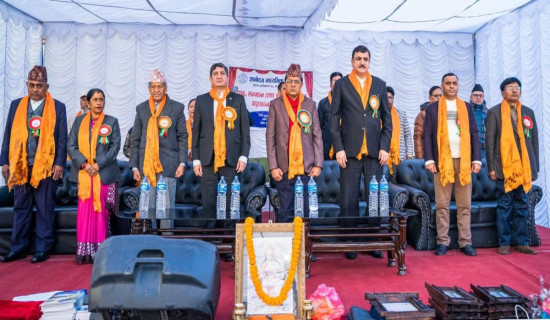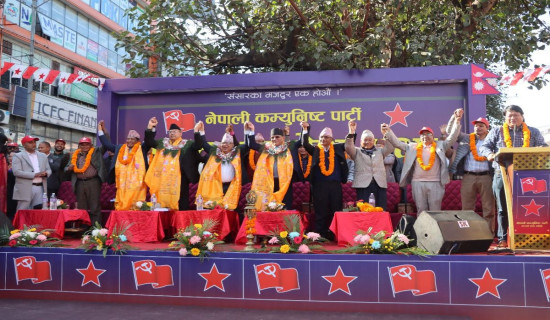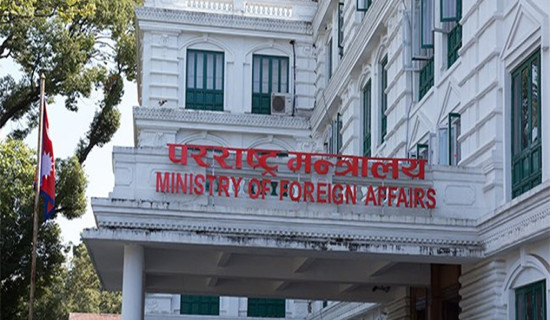- Monday, 1 December 2025
Tribeni School in Gorkha empowers students with practical skills
BY GUN BAHADUR ROKA
Sulikot, Oct. 29: Tribeni Secondary School in Gorkha is setting an inspiring example by combining education with hands-on agricultural training.
The school currently has around 350 students, nearly half of whom, from grades 9 to 12, are enrolled in the technical education stream. As part of its ‘Learning and Earning' programme, the school teaches students practical, agriculture-related skills alongside their regular studies.
Students in the technical stream are involved in vegetable and poultry farming on the school’s land. Those living nearby commute from home, while students from distant areas rent rooms near the school. When they return home, many students take along the income they’ve earned through their agricultural work.
According to headmaster Ganesh Raj Sedhai, the ‘Learning and Earning’ initiative has increased students’ enthusiasm and confidence, helping them become self-reliant. “The programme aims not just to provide academic knowledge but also to offer practical skills and a means of income,” he said.
Under the programme, students also receive various vocational and skill-oriented training. Grade 12 student Pooja Lama shared that among the 300 chickens raised by students, about 150 now weigh around five kilograms each. “After selling them and deducting the expenses, each student earns around Rs. 15,000. That income helps us cover our personal costs,” she said.
While students of grades 11 and 12 are involved in poultry farming, those in grades 9 and 10 are engaged in vegetable cultivation. The school introduced agriculture as a subject to promote self-sufficiency and prepare students for future employment through practical knowledge and business skills.
Principal Sedhai believes that students’ enthusiasm for managing their own farming has resulted in good earnings and meaningful learning experiences. “When students actively care for their crops and livestock, they learn responsibility and gain confidence. This will make them skilled and independent in the future,” he said.
Although technical education is part of the government’s plan, Sedhai pointed out that funding remains insufficient. The school has leased eight ropanis of land for agricultural activities. Inspired by the school’s efforts, local villagers have also begun cultivating their land instead of leaving it barren.
The school received support from the Bimala and Bismita Foundation for constructing the poultry shed. The seed capital remains intact, and profits are distributed equally among the students. “The students work together and share their income fairly,” Sedhai added.

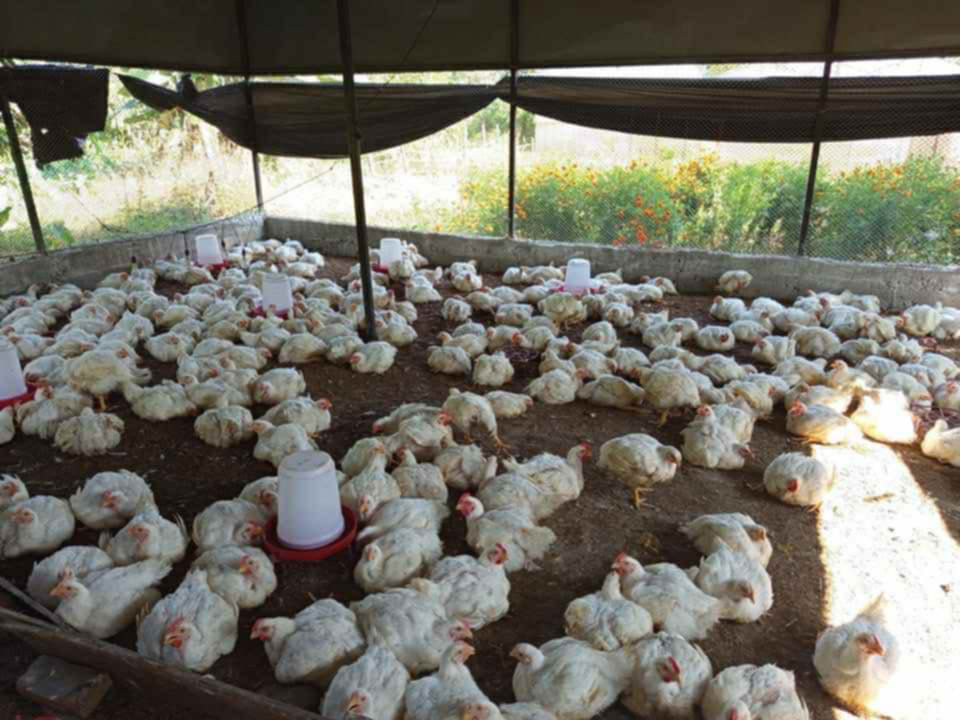



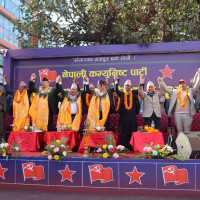
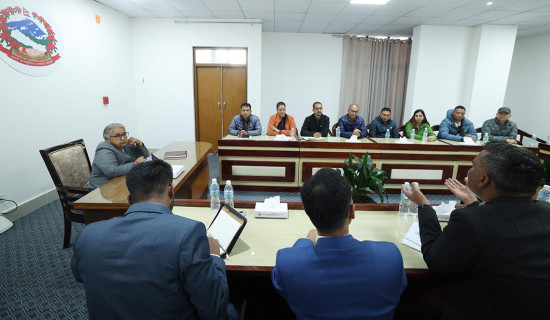
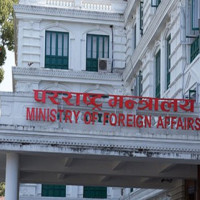
-square-thumb.jpg)

